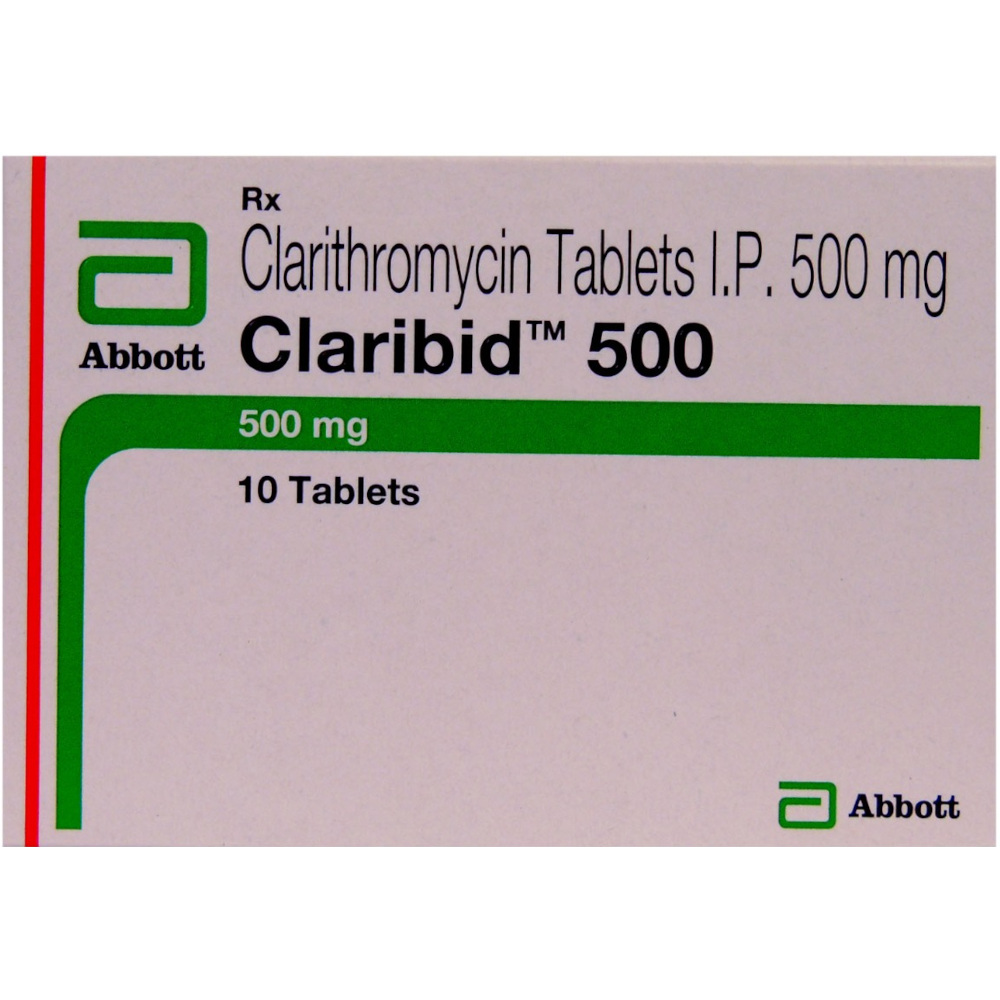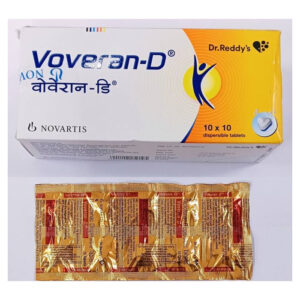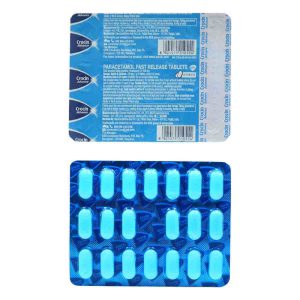Claribid (Clarithromycin Tablets) – Product Information
Claribid is used to treat certain bacterial infections, including Respiratory tract infections (throat, airways, sinus and lungs), Skin and soft tissue infections and Peptic ulcer.
Claribid is also used to prevent a specific bacterial infection associated with HIV infection. Clarithromycin is an antibiotic that belongs to a group of medicines called macrolides which work by killing or stopping the growth of bacteria which cause infections. Clarithromycin Tablets will not work against infections caused by viruses, such as colds or flu. Clarithromycin tablets are available in strengths of 250 mg and 500 mg.
We also stock Amoxycillin Trihydrate Capsules (Novamox) which used to treat infections of the middle ear, tonsils, throat, larynx (laryngitis), bronchi (bronchitis), lungs (pneumonia), urinary tract, and skin.
Name of Drug
Claribid Tablets
Manufacturer Of Claribid Tablets
Abbott India Limited
Website: www.abbott.co.in
Active Pharmaceutical Ingredient in Claribid Tablets
The active pharmaceutical ingredient present in Tablets is Clarithromycin.
Uses of Claribid Tablets
Claribid Tablets (Clarithromycin) is used for for the treatment of infections caused by susceptible bacteria. Such infections include:
1.Respiratory tract infections including bronchitis, pneumonia, tonsillitis, sinusitis and pharyngitis.
2.Skin and soft tissue infections such as folliculitis, cellulitis and erysipelas.
3.Disseminated or localized mycobacterial infections due to Mycobacterium avium or Mycobacterium intracellulare. Localized infections due to Mycobacterium chelonae, Mycobacterium fortuitum, or Mycobacterium kansasii.
4.Prevention of disseminated Mycobacterium avium complex infection in HIV-infected patients
5.Duodenal ulcer. Clarithromycin in the presence of acid suppression is indicated for the treatment of duodenal ulcer and in reducing the rate of ulcer recurrence.
H. pylori is strongly associated with peptic ulcer disease. 90 to 100% of patients with duodenal ulcer and 70 to 80% of patients with gastric ulcer are infected with this pathogen. Eradication of H. Pylori has been shown to reduce the rate of duodenal ulcer recurrence.
Clarithromycin Tablets – Contraindications
Clarithromycin Tablets (Claribid) are contraindicated in patients with a known hypersensitivity to clarithromycin or any of its inactive ingredients, erythromycin, or any of the macrolide antibiotics. It is also contraindicated in patients with a history of cholestatic jaundice/hepatic dysfunction associated with prior use of clarithromycin.
Concomitant administration of clarithromycin and any of the following drugs is contraindicated: cisapride, pimozide, astemizole, terfenadine, and ergotamine or dihydroergotamine. Post marketing reports have indicated drug interactions when clarithromycin and/or erythromycin are coadministered with cisapride, pimozide, astemizole, or terfenadine resulting in cardiac arrhythmias. Fatalities have also been reported.
Concomitant administration of clarithromycin and colchicine is contraindicated in patients with renal or hepatic impairment. Clarithromycin should not be given to patients with history of QT prolongation or ventricular cardiac arrhythmia, including torsades de pointes. Clarithromycin should not be used concomitantly with HMG-CoA reductase inhibitors (statins) that are extensively metabolized by CYP3A4 (lovastatin or simvastatin), due to the increased risk of myopathy, including rhabdomyolysis.
Clarithromycin Tablets (Claribid) – Dosage
The usual recommended adult dosage of Claribid Tablets (Clarithromycin) is one 250 mg tablet twice daily. In more severe infections, the dosage can be increased to 500 mg twice daily. The usual duration of therapy is 5 to 14 days, excluding treatment of community acquired pneumonia and sinusitis which require 6 to 14 days of therapy.
In patients with renal impairment with creatinine clearance less than 30 mL/min, the dosage of clarithromycin should be reduced by one-half, i.e. 250 mg once daily, or 250 mg twice daily in more severe infections.
Missed Dose
Take the missed dose of Clarithromycin Tablets as soon as you remember. If it is almost time for your next dose, skip the dose you missed and take your next dose at your regular time.
Storage Instructions for Clarithromycin Tablets
Clarithromycin Tablets should be kept in a cool, dry place where the temperature stays below 25°C. Do not store or Claribid any other medicine in the bathroom or near a sink. Keep away from children and pets.
Warnings and Precautions when using Clarithromycin Tablets
Before using Clarithromycin Tablets please inform your doctor all the medicines that you take including no prescription medications, over the counter medicines and herbal remedies. The other precautions to be taken are:
- Pseudomembranous colitis: Pseudomembranous colitis has been reported with nearly all anti-bacterial agents, including macrolides, and may range in severity from mild to life-threatening.
- Myasthenia gravis:Exacerbation of symptoms of myasthenia gravis has been reported in patients receiving clarithromycin.
- Colchicine: There have been post-marketing reports of colchicine toxicity with concomitant use of clarithromycin and colchicine, especially the elderly, some of which occurred in patients with renal insufficiency.
- Oral Hypoglycemic Agents/Insulin: The concomitant use of clarithromycin and oral hypoglycemic agents and/or insulin can result in significant hypoglycemia.
- Oral Anticoagulants: There is a risk of serious hemorrhage and significant elevations in INR and prothrombin time when clarithromycin is co-administered with warfarin.
- HMG-CoA Reductase Inhibitors:Concomitant use of clarithromycin with lovastatin or simvastatin is contraindicated
- Hepatic and Liver Impairment: Caution should be exercised in administering clarithromycin to patients with impaired hepatic function as Clarithromycin is principally excreted by the liver and kidney.
- Macrolide medicines: There is a possibility of cross resistance between clarithromycin and other macrolide medicines, as well as lincomycin and clindamycin.
Side Effects of Clarithromycin Tablets
The most frequently reported side effects in adults taking Claribid tablets (Clarithromycin Tablets) were diarrhea (3%), nausea (3%), abnormal taste (3%), dyspepsia (2%), abdominal pain/discomfort (2%), and headache (2%). In pediatric patients, the most frequently reported events were diarrhea (6%), vomiting (6%), abdominal pain (3%), rash (3%), and headache (2%). Most of these side effects were reported to be mild or moderate in severity.
Inform your doctor immediately if you notice any of the following side effects of Clarithromycin Tablets as urgent medical care may be required:
- yellowing of the eyes or skin (jaundice)
- oral thrush (sore white mouth or tongue) or vaginal thrush (vaginal itching or discharge)
- feeling generally unwell and having poor appetite
- hearing disturbances
- dizziness, confusion, hallucination, depression
- any type of skin rash, itching, hives
- severe diarrhoea, especially if bloody
- severe upper stomach pain, with nausea and vomiting (pancreatitis)
- signs of frequent infections such as fever, severe chills, sore throat or mouth ulcers
- bleeding or bruising more easily than normal
- muscle aches and pains.
Stop taking Clarithromycin Tablets and inform your doctor immediately or go to the accident and emergency at your nearest hospital if any of the following occur:
- swelling of the face, lips, mouth, throat or neck which may cause difficulty in swallowing or breathing or sudden collapse
- chest pain
- convulsions
Clarithromycin Tablets during Pregnancy and Lactation
Clarithromycin Tablets should not be used in pregnant women except in clinical circumstances where no alternative therapy is appropriate and the potential benefit justifies a potential risk to the foetus. In case pregnancy occurs while taking this drug, the patient should be informed of the potential hazard to the fetus.
The safety of clarithromycin for use during breast feeding of infants has not been established. Clarithromycin is excreted into human breast milk.
Overdose of Clarithromycin Tablets
Overdosage of clarithromycin (Claribid Tablets) can cause gastrointestinal symptoms such as abdominal pain, vomiting, nausea, and diarrhea.
Adverse effects caused by overdosage should be treated by the prompt elimination of unabsorbed medicine and supportive measures. As with other macrolides, clarithromycin serum concentrations are not expected to be appreciably affected by hemodialysis or peritoneal dialysis.
Buy Clarithromycin Tablets (Claribid Tablets) 250 mg and 500 mg Online at a Cheap Price
You can buy Clarithromycin Tablets at a cheap price online from the Swiss Pharmacy. It is available in pills of 250 mg and 500 mg. Claribid 250 mg pills are priced at only $1.60 per unit, if you place an order for 200 pills.







